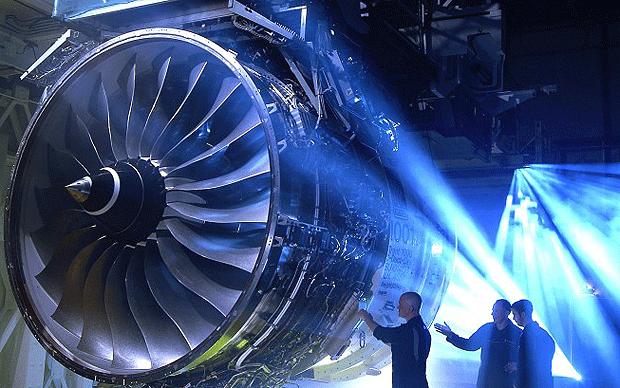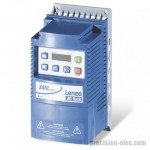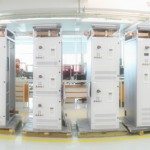Motor Speed Controllers
There are three general types of motor speed controllers – AC motor speed controllers, DC Motor motor speed controllers, and Eddy Current motor speed controllers. Each type of motor speed controller can be divided into different variations. Each type of motor speed controller system will include an electric motor and a speed control unit. Motor speed control technology today mainly consists of solid state electronic components in a single system. Older speed control systems use mechanical parts that, over time, result in failure due to moving and worn parts.
AC Motor Speed Controllers
AC motor speed controllers are also known as alternating current speed controllers, adjustable speed drives, variable frequency drives, VFD’s, inverters, and micro drives. AC motor speed controllers are used in many applications such as air compressors, conveyors, injection moulding, food processing, waste water treatment pumps, HVAC fans and blowers, and other industrial applications. Approximately one third of the world’s electrical energy is supplied by electric motors in fixed-speed centrifugal pump, fan, and air compressor applications. This proves that energy efficiency improvement can be implemented where electric motors are operating without speed AC motor speed controllers.
DC Motor Speed Controllers
DC Motor Speed Controllers are also known as DC variable frequency drives, or DC drive systems. The speed of a DC motor is directly proportional to armature voltage and inversely proportional to motor flux; either armature voltage or field current can be used to control the motor speed. DC Motors have become expensive and today most dc motor speed control systems have been retrofitted by pairing an AC motor with an AC motor speed controller. AC motor speed controllers are more energy efficient, less expensive and more available than DC motor speed controllers.
Eddy Current Motor Speed Controllers
Eddy current motor speed controllers are a combination of a fixed speed motor and an eddy current clutch. The clutch contains a fixed speed rotor and an adjustable speed rotor separated by a small air gap. A direct current in a field coil produces a magnetic field that determines the torque transmitted from the input to the output rotor. The controller provides closed loop speed regulation by varying the clutch current, allowing the clutch to transmit enough torque to operate at the desired speed. Speed feedback is provided by an integral AC tachometer.
Eddy current controllers are less efficient than all other types of motor speed controllers. Nearly all eddy current controllers are obsolete today. Some manufacturers still use eddy current motor speed controllers, but when the equipment fails, it’s expensive to repair and often impossible to replace. Eddy current motor speed controllers are upgraded via replacement by pairing an AC motor with an AC motor speed controller.
For motor speed controller replacement, repair, or retrofit quotes, Contact Precision Electric, Inc.









Trackbacks & Pingbacks
[…] Motor Speed Controllers […]
Comments are closed.